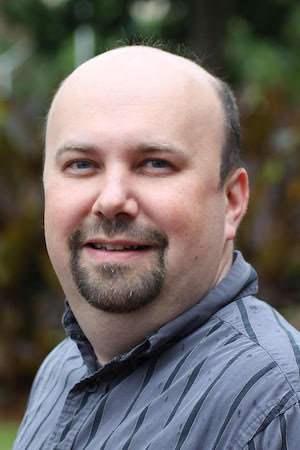Graduate Seminar Series
September 08, 2023
12:00 p.m. ET
Scaife Hall 105
September 08, 2023
12:00 p.m. ET
Scaife Hall 105
Deep learning is revolutionizing many areas of science and technology, particularly in natural language processing, speech recognition, and computer vision. In this talk, we will provide an overview of the latest developments of machine learning and AI methods and their application to the problem of drug discovery and development at Isayev’s Lab at CMU. We identify several areas where existing methods have the potential to accelerate materials research and disrupt more traditional approaches. First, we proposed a novel ML-guided materials discovery platform that combines synergistic innovations in automated flow synthesis and automated machine learning (AutoML) method development. A software-controlled, continuous polymer synthesis platform enables rapid iterative experimental–computational cycles that result in the synthesis of hundreds of unique copolymer compositions within a multi-variable compositional space. The non-intuitive design criteria identified by ML, accomplished by exploring less than 0.9% of overall compositional space, upended conventional wisdom in designing 19F MRI agents and led to identifying >10 copolymer compositions that outperformed state-of-the-art materials. Our platform is now being integrated with CMU Cloud Lab.
Second, we will present a deep learning model that approximates the solution of the Schrodinger equation. We introduce the AIMNet-NSE (Neural Spin Equilibration) architecture, which can predict molecular energies for an arbitrary combination of molecular charge and spin multiplicity. The AIMNet-NSE model allows us to bypass QM calculations fully and derive the ionization potential, electron affinity, and conceptual Density Functional Theory quantities like electronegativity, hardness, and condensed Fukui functions. We show that these descriptors, along with learned atomic representations, could be used to model chemical reactivity through an example of regioselectivity in electrophilic aromatic substitution reactions.

Olexandr Isayev is an Associate Professor in the Department of Chemistry at Carnegie Mellon University. In 2008, Olexandr received his Ph.D. in computational chemistry. He was a Postdoctoral Research Fellow at the Case Western Reserve University and a scientist at the government research lab. During 2016-2019 he was a faculty at UNC Eshelman School of Pharmacy, the University of North Carolina at Chapel Hill. Olexandr received the “Emerging Technology Award” from the American Chemical Society (ACS) and the GPU computing award from NVIDIA. The research in his lab focuses on connecting artificial intelligence (AI) with chemical sciences.
December 10 2025
8:30 AM - 5:00 PM ET
Materials Science and Engineering
Molecular Engineering of Soft Materials Symposium
The symposium will highlight cross-disciplinary research across CMU departments, with the goal of advancing soft materials research.
5201 Scott Hall
December 11 2025
4:00 PM ET
Materials Science and Engineering
M.S. Program Information Session
Join us online to learn more about becoming part of the graduate student community through our master's degree programs.
Virtual